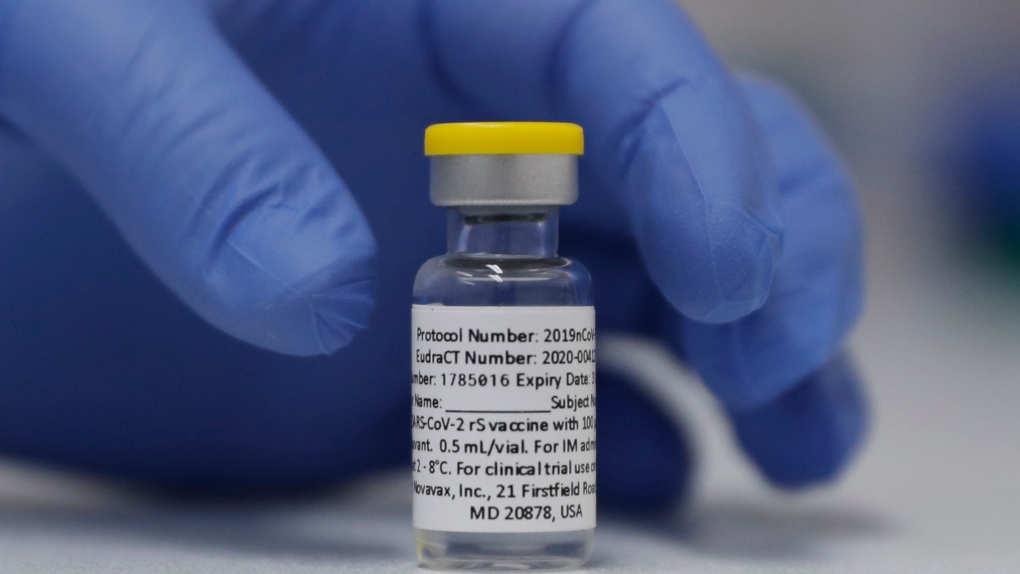Why domestic vaccine production across Canada is key to controlling another pandemic

The former dean of medicine at McGill University says Canadians should not forget about the shortage of vaccines the country faced during a very difficult moment in the COVID-19 pandemic.
“We like to forget things that have happened that are difficult,” Dr. Abe Fuks told CTV News Toronto.
“So when there’s a pandemic, at a societal level, or when someone has been ill, at an individual level, we like to get on with our life afterwards and forget the bad times.”
It’s a phenomenon Fuks describes as “social amnesia” and something he said needs to be avoided before another pandemic hits.
“In the midst of a pandemic, or a volcanic eruption, is not the time to plan for the future. We owe it to ourselves and certainly the next generation to avoid a catastrophe, we need to plan now,” he said.
Fuks’ comments come as Canada prepares to enter the third year of COVID-19, with at least 82.52 per cent of the population over the age of 5 considered to be fully vaccinated.
Although Canada’s vaccination rate is considered high now, the initial rollout of doses across the country in early 2021 was plagued by delays in shipments from countries that produce vaccines on their own soil.
“You may not get supplies if others are needy in the countries of manufacturers,” explains Earl Brown, a professor emeritus of virology at the University of Ottawa. “You have to have domestic production.”
Canadians have become increasingly familiar with the pharmaceutical giants Pfizer, Moderna, and AstraZeneca over the last 22 months, but there was a time when Canada was considered a powerhouse in mass vaccine production through the work of Connaught Labs in Toronto and Institut Armand Frappier in Montreal.
Brown believes that in recent decades people got complacent and stopped thinking strongly about vaccines and their benefit in the face of a major health-care crisis.
“So you had a model where it was hard to make money in vaccines and you have a big contraction in the 70s and 80s,” Brown explained. That led to the eventual sale of Connaught and Frappier to pharmaceutical companies in France and the U.K, respectively.
In an effort to regain Canada’s former vaccine production horsepower, the federal government has invested $1.3 billion in 29 COVID-19 domestic biomanufacturing, vaccines and therapeutics projects -- nine of which are in Ontario.
That money includes $126 million for the construction of the Biologics Manufacturing Centre in Montreal, a facility that will be able to produce roughly two million doses of the Maryland-based Novavax vaccine every month.
The facility is not yet operational and the vaccine is awaiting approval by Health Canada, which is expected to rule on its use in fighting COVID-19 in the coming weeks.

But investments being made now in domestic vaccine production are a step in the right direction, said Fuks, and can prepare us before the next pandemic arrives in Canada and “social amnesia” sets in.
“We often forget, we think its over with, we’re okay now,” Fuks said. “And sadly, with every crisis, we forget, and pray there won’t be a next one. Now it’s fine to pray, but you have to get ready.”
With files from Rahim Ladhani
CTVNews.ca Top Stories

More than 115 cases of eye damage reported in Ontario after solar eclipse
More than 115 people who viewed the solar eclipse in Ontario earlier this month experienced eye damage after the event, according to eye doctors in the province.
Toxic testing standoff: Family leaves house over air quality
A Sherwood Park family says their new house is uninhabitable. The McNaughton's say they were forced to leave the house after living there for only a week because contaminants inside made it difficult to breathe.
Decoy bear used to catch man who illegally killed a grizzly, B.C. conservation officers say
A man has been handed a lengthy hunting ban and fined thousands of dollars for illegally killing a grizzly bear, B.C. conservation officers say.
B.C. seeks ban on public drug use, dialing back decriminalization
The B.C. NDP has asked the federal government to recriminalize public drug use, marking a major shift in the province's approach to addressing the deadly overdose crisis.
OPP responds to apparent video of officer supporting anti-Trudeau government protestors
The Ontario Provincial Police (OPP) says it's investigating an interaction between a uniformed officer and anti-Trudeau government protestors after a video circulated on social media.
An emergency slide falls off a Delta Air Lines plane, forcing pilots to return to JFK in New York
An emergency slide fell off a Delta Air Lines jetliner shortly after takeoff Friday from New York, and pilots who felt a vibration in the plane circled back to land safely at JFK Airport.
Sophie Gregoire Trudeau on navigating post-political life, co-parenting and freedom
Sophie Gregoire Trudeau says there is 'still so much love' between her and Prime Minister Justin Trudeau, as they navigate their post-separation relationship co-parenting their three children.
Last letters of pioneering climber who died on Everest reveal dark side of mountaineering
George Mallory is renowned for being one of the first British mountaineers to attempt to scale the dizzying heights of Mount Everest during the 1920s. Nearly a century later, newly digitized letters shed light on Mallory’s hopes and fears about ascending Everest.
Loud boom in Hamilton caused by propane tank, police say
A loud explosion was heard across Hamilton on Friday after a propane tank was accidentally destroyed and detonated at a local scrap metal yard, police say.































